I was moved by the Channel 4 documentary on Hunting the Football Trolls featuring Jermaine Jenas. He had bravely spoken openly about his emotions and feelings on being targeted for racial slurs and hateful messages on social media. I applaud his bravery for speaking out. It brought it home to me how people could dehumanise others so easily, especially those that they do not know personally. It made me wonder how someone could objectify others without conscience.
 I understand racism, prejudices and discrimination because I had endured the pain and hurt myself, as a child growing up in the UK. I had never known it before, in Thailand where I was born. However, I had grown up thinking that as a minority, it must have been something that we (as the minorities) had to put up with. Not many people speak out about it thirty years ago. Not that I recalled. It was not okay then, and it is still not okay now. I am thankful that more and more people are spoken up about it.
I understand racism, prejudices and discrimination because I had endured the pain and hurt myself, as a child growing up in the UK. I had never known it before, in Thailand where I was born. However, I had grown up thinking that as a minority, it must have been something that we (as the minorities) had to put up with. Not many people speak out about it thirty years ago. Not that I recalled. It was not okay then, and it is still not okay now. I am thankful that more and more people are spoken up about it.
In this blog, I want to share my intrapsychic processes in dealing with any persons who objectify others. If you have been a subject of hate on social media or in person, you might find these processes helpful too. If you are experiencing racial attacks in your daily life, again, it might help to learn that you, too, can overcome their racial prejudices.
 In my experience, I found that individuals who personally attack others at their core being have a deficiently low sense of self-worth within themselves. They do not want others to know this and will put up a front by attacking others. After all, no one is going to be looking or noticing them. I had come to realise that the bullies were often bullied by others, and they were simply repeating learned helplessness behaviours by bullying, discriminating, racially attacking you. They had learned that they didn’t have a choice and was helpless to accept the situation. At their core being, they may feel insecure and hurting. They mimic the unacceptable behaviours believing that it must be powerful to do the bullying to others.
In my experience, I found that individuals who personally attack others at their core being have a deficiently low sense of self-worth within themselves. They do not want others to know this and will put up a front by attacking others. After all, no one is going to be looking or noticing them. I had come to realise that the bullies were often bullied by others, and they were simply repeating learned helplessness behaviours by bullying, discriminating, racially attacking you. They had learned that they didn’t have a choice and was helpless to accept the situation. At their core being, they may feel insecure and hurting. They mimic the unacceptable behaviours believing that it must be powerful to do the bullying to others.
Just a caution, the hypotheses below offers a psychological perspective of an inner working on one’s mind, both as a sufferer and as the perpetrator. It is not an excuse for any individuals and especially those that cause harm to others. It is a subjective supposition based on my experiences as a sufferer and from learned experiences with perpetrators. The purpose of highlighting their perspectives is to understand the underlying behaviours and the roles they inadvertently played in the “drama triangle”. The drama created in an insecure person is inadvertently played out in reality as they co-create the inner world, in the real world.
 Introducing drama triangle?
Introducing drama triangle?
The drama triangle is a psychological model that was first described by Stephen Karpman in 1961, who was a student of Eric Berne, the founding father of Transactional Analysis developed in the 1950s. Karpman explained the insidious nature of the psyche in which we all, unconsciously, play a part in the game of life. He went on to explain how we can fall victim to the roles in our life script. He also described how we could all get caught in the destructive cycle and struggle to break free from its toxic enmeshment. It did not begin with ourselves, but you can end the maintaining cycle. You do have a choice!
The purpose of discussing this theorem is not about blame but rather to highlight that we are all subjected to learned helplessness in its dysfunctional social interactions, which has increasingly become a problem in modern societies, especially on online social media platforms.
As mentioned at the beginning of this article, it begins with online abuse, trolling, hateful and abusive messages (directly or indirectly). It begins in the dysfunctional household in which warmth, love, and compassion are missing. It starts as self-defecation, self-loathing and self-hatred, and then it spreads outwards out of our pores infecting and targeting others. It was negatively reinforced into our being from adverse parental experiences of our parents. They may have been unconsciously ‘acting out’ what was normal within their household. And until we have an awareness of our misbehaving, we remain oblivious of our behaviours towards others. Let’s take a closer look at each of the roles in the drama that we participated in and helped co-created.
“We have a choice about the roles that we play in the game of life. Which part will you choose to play in your next role?”
As the victim (the suffers)
Generally, no one willingly, readily or consciously chooses to be a victim. It is something that is forced or happens to us. The sufferer often feels trapped, helpless and hopeless to do something about the situation. Especially when the abuse is online, social media sites are not proactive in dealing with the abuse. And especially, after you reported the abuse you may not see any real changes.
 Being victimised predominantly begin in childhood. As a child, you may feel trapped when you are told off, reprimanded or abused by someone older/bigger and more powerful, usually a parent or an older sibling. As you internalised, you inadvertently assumed being powerless because you are smaller and have no power. You question your sense of worth and wonder why it happened to you. If you had no choice and could not venture out on your own, and you had to stay in a dysfunctional environment, it leaves you vulnerable to defend yourself against future attacks. You become learned helpless in situations and seek out other destructive engagements because it was familiar. This internalisation happens unconsciously to you. You had unwittingly become a victim because of your negative childhood experiences, negative reinforcement, abuse and cruelty.
Being victimised predominantly begin in childhood. As a child, you may feel trapped when you are told off, reprimanded or abused by someone older/bigger and more powerful, usually a parent or an older sibling. As you internalised, you inadvertently assumed being powerless because you are smaller and have no power. You question your sense of worth and wonder why it happened to you. If you had no choice and could not venture out on your own, and you had to stay in a dysfunctional environment, it leaves you vulnerable to defend yourself against future attacks. You become learned helpless in situations and seek out other destructive engagements because it was familiar. This internalisation happens unconsciously to you. You had unwittingly become a victim because of your negative childhood experiences, negative reinforcement, abuse and cruelty.
Being a victim DID NOT begin with you.
As the perpetrator (the abuser)
Individuals who were brought up in an abusive, oppressive, hostile, and critical environment may have inadvertently fallen into being a victim initially. They had helplessly learned what was normal in the abnormal and dysfunctional family system. They learned from their caregivers and mirrored their role as an abuser and persecutor. They learned to punish others by abusing them, to hurt others just as they were hurt.
 These individuals blame their victims for their own weaknesses. As a child, we could not and do not blame our parents for their misbehaving and misguided parenting. The child magically believed that their parents are Gods, according to John Bradshaw On the Family. The concept of magically thinking describes how a child idealises their parents within the family system. The child would not and could blame themselves as their cognitive functions are still developing. And if the child does not learn to take responsibility for their actions, they will grow up and continue to blame others for their flaws. Individuals with toxic and negative nurturing experience externalised behaviours such as physical aggression, verbal abuse, relational aggression, hate and acting out any forms of hostility and violence, physically, mentally, psychologically or verbally.
These individuals blame their victims for their own weaknesses. As a child, we could not and do not blame our parents for their misbehaving and misguided parenting. The child magically believed that their parents are Gods, according to John Bradshaw On the Family. The concept of magically thinking describes how a child idealises their parents within the family system. The child would not and could blame themselves as their cognitive functions are still developing. And if the child does not learn to take responsibility for their actions, they will grow up and continue to blame others for their flaws. Individuals with toxic and negative nurturing experience externalised behaviours such as physical aggression, verbal abuse, relational aggression, hate and acting out any forms of hostility and violence, physically, mentally, psychologically or verbally.
The majority of a bully or an abuser has been the subject of abuse themselves, which may be why they bully or abuse others to make themself feel superior, and to feel powerful. This is not an excuse because some people who were bullies had not resorted to becoming one themselves.
As the Rescuer (the helper)
Individuals who identify themselves as a rescuer will attempt to help the sufferers and intervene to save them from the bullies or the abusers. They suffer enormously from guilt if they do not interfere. They have a positive intention to help the person, but they could not see the consequence of their behaviours and may often worsen the situation. This individual has a strong desire to protect others, but it can keep the victim arrested in their development as they become dependent on the person to fight their battle.
 The Rescuer has a propensity to focus on helping and failing to see their unconscious gains. These unconscious gains include being good because one is needed or wanted, feeling important, feeling God-like, and feeling helpful or valuable, all of which satisfy the egoic mind.
The Rescuer has a propensity to focus on helping and failing to see their unconscious gains. These unconscious gains include being good because one is needed or wanted, feeling important, feeling God-like, and feeling helpful or valuable, all of which satisfy the egoic mind.
I had been bullied, verbally and mentally. I was bullied in the first two years of secondary school, and I found a way to stand up to the bullies. I was bullied because I was Thai and looked essentially different to the majority of white children in the class. I was a minority and could not speak English. It seemed like I was the easy target! As the only oriental at school, I was objectified and depersonalised.
It has not been on my conscience to pay it forward at any stage because I believed in karma. I remember thinking that it would not be fair to treat others in the same way because I didn’t like it. Thus, it is not always the case that those who were bullied become a bully.
I had been a victim; however, I never felt sorry for myself or thought why me. I thought, what’s wrong with you, rather than what’s wrong with me? What happened to you to be so mean? How did you come to be full of rage and hate? In cases of individuals who target others for their appearances, specifically online, they think it is safe to hide behind their masks and the internet. These individuals dehumanise, criticise and devalue someone often because they projected something they disliked within themselves onto others. It is far easier to mock them than it is to knock ourselves.
I had never been a perpetrator. It did not sit well with me morally, and I had never consciously wished harm onto another. If I was with someone that bullies others, I removed myself from the toxic person. If I don’t like something to be done unto me, I would not want it done onto thee. I considered the hurt and pain of the catcalls, and I cannot put anyone through any form of (verbal or physical) abuse. I do not want bad karma or the negative consequences of the law of attraction.
I am a rescuer. I want to help others and it was unsurprising that I am a counsellor/therapist. However, I had been compromised and thought that my good intentions were helpful and useful to others. It is true that there is a sense of satisfaction in helping and being in service of others. But, it can be a hinder to their development and growth if you take away the learning experiences for the individual.
“We learn by making mistakes. We learn from our pain and suffering. In light of those experiences, we grow and thrive as a unique spiritual being.”
How to break out of the drama triangle?
Here are some helpful tips on how to break free from the drama triangle. It is never too late to choose another role. You just need to remember that you DO have a choice. So, choose wisely.
Recognise your position in the drama triangle
Recognising whereabout you are on the drama triangle will help you to be aware of your role when you are relating to others. When you recognise your part, you can decide if playing in the triangle is helpful to you. We are all participants in the game of life, and how we play depends on our chosen role. We can challenge any position in life if they are no longer helpful. Once you realise that you have a choice, you can work toward breaking free from the confinement of the outdated role and step out of the drama triangle into a life worth living.
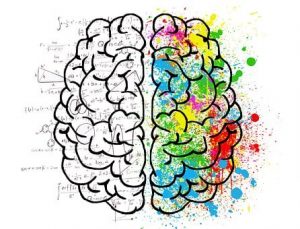 Be mindful and ask first, challenge later
Be mindful and ask first, challenge later
When you are mindful of others, you are less likely to jump to any form of illusion about what was said or who said what. On social media, we can easily misread, misunderstand and mis-take things the wrong way. In a mindful state, you will be prone to ask questions to find what more about what or why it was said. You would consider whether you understood the content or that the other person miscommunicated. Say: When you said that, what did you mean? Why did you say that?… I was hurt, upset, etc. What you said was untrue, insensitive, rude, hurtful etc.; why did you make those personal remarks? If you can be bothered to respond to the attackers. It is also safer and kinder to yourself to report, blocking them from seeing their contents entirely.
 Be curious
Be curious
Curiosity is one of the core traits of our inner child. Curiosity gives us a sense of inquisitiveness to explore further what someone meant. Communication is a two-way process, and misunderstanding can happen when we relate to each other, especially in writing. Curiosity requires an investigation and encourages further dialogue. If you are being bullied, ask the bullier why they are bullying you? Say: When you said that, it upsets me, hurt me; etc. When you spoke to me that way or write those things about me, I felt humiliated, shame, or that I felt bullied, etc.
 Stand firm and stand tall
Stand firm and stand tall
When you stand up for yourself against a bully, they may retaliate in response to your behavioural change. Your behaviour has consequences on others, just as you are influenced by another. However, standing firm and standing tall against any form of bullies or injustice is about facing up to and confronting the other. It is not an easy thing to do especially if it is unfamiliar to you. But, standing up for yourself may also be demonstrated in your body language, without words. Often when most of us face someone with bullish behaviour, we politely walk away. But, this might be an opportunity to stand your ground and test out your stance. It might be a look that says, you cannot treat me that way. It might be your long gaze at the person as they misbehaved. You can also consciously broadcast messages that say something like, you will not stand to be bullied, abused, violated, dehumanised, devalued etc. These are unspoken thoughts and convictions of your inner voice, speaking loudly in your psyche, directly project to the person as you continue to look at the individual. Standing firm online might include reporting it to the social media platform and the police. Standing firm might also include responding to the bullies and shaming them online and making them a focus rather than you.
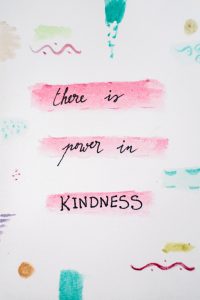 Rewind! And Be kind
Rewind! And Be kind
Kindness acts is a gesture of love for others. It shows that you are mindful and considerate of others, but not over your own needs. Kindness is powerful in relationship building and helps diffuse even the hardened mind. Kindness act is a balance of being considered and being equally important. A kind word can help lift someone’s day. Imagine how a kind act can help the person.
Making a change is never easy but it is not impossible. You can unlearn the way you used to do things, and relearn to do it differently. It may be unfamiliar to you but like anything worth doing, it will be rewarding.
As a final note, I just want to add that it is never okay to mistreat any other living beings. It is never acceptable to devalue, objectify, (verbally, mentally or physically) abuse or dehumanise anyone. After all, how would you like it if it happened to you?
It did not start with you, but it can end with you; you can change your beliefs, your mindset and your behaviours about something or someone. You can be the person who breaks the mould. Break the archaic societal rules embedded in the collective unconsciousness of rage or hate. Breakfree and break away from the racial, discriminatory and prejudiced trance.


 The purpose of mindfulness is to stay neutral to your experiences with the intention of staying with yourself. The idea is to be alert with a focused relaxation. Thoughts and abreactions in the body will arise. You may notice them and observe them without judgement. They will find that they will soon dissipate and disappear.
The purpose of mindfulness is to stay neutral to your experiences with the intention of staying with yourself. The idea is to be alert with a focused relaxation. Thoughts and abreactions in the body will arise. You may notice them and observe them without judgement. They will find that they will soon dissipate and disappear. In the state of mindfulness, your mental and physical state changes any chemical imbalances in the brain. It makes it rewarding and satisfying. This helps you see your inner resilience and inner strength as you successfully become mindful. You could instantly feel an improvement in your entire being. Eventually, you can feel confident in your achievement of being mindful. Before you know it, you are already motivated to keep practising mindfulness.
In the state of mindfulness, your mental and physical state changes any chemical imbalances in the brain. It makes it rewarding and satisfying. This helps you see your inner resilience and inner strength as you successfully become mindful. You could instantly feel an improvement in your entire being. Eventually, you can feel confident in your achievement of being mindful. Before you know it, you are already motivated to keep practising mindfulness. Mindful meditation requires you to sit in a meditative lotus posture, preferrable where you can be close to the ground for grounding and support. The combination of mindfulness and meditation is a marriage made in heaven. It is the most effective approach to a mindful state. You might want to explore using mantra words or statements to repeat silently during the meditation.
Mindful meditation requires you to sit in a meditative lotus posture, preferrable where you can be close to the ground for grounding and support. The combination of mindfulness and meditation is a marriage made in heaven. It is the most effective approach to a mindful state. You might want to explore using mantra words or statements to repeat silently during the meditation. Emotional awareness meditation concerns your feelings emotions. This approach of mindfulness meditation considers being with your feelings and emotions. However, you might already know that it is difficult to practice mindfulness meditation when an emotion grips you. But, this is the best time to use this technique. In a meditative and relaxed state, you can observe your feelings, name them, locate it in the body and bear with them much easier than in the heightened state. In a heightened state, you are reactive to the experience in the situation. In a relaxed state, you are non-reactive but responsive and aware of the emotions. If helpful, you can go into the meditation and recall an event where strong emotions arise. Practice being with your feelings and emotions. Observe them without judging or giving them narratives or meanings. Accepting them as being a part of you and having compassion for the way they had influenced your responses.
Emotional awareness meditation concerns your feelings emotions. This approach of mindfulness meditation considers being with your feelings and emotions. However, you might already know that it is difficult to practice mindfulness meditation when an emotion grips you. But, this is the best time to use this technique. In a meditative and relaxed state, you can observe your feelings, name them, locate it in the body and bear with them much easier than in the heightened state. In a heightened state, you are reactive to the experience in the situation. In a relaxed state, you are non-reactive but responsive and aware of the emotions. If helpful, you can go into the meditation and recall an event where strong emotions arise. Practice being with your feelings and emotions. Observe them without judging or giving them narratives or meanings. Accepting them as being a part of you and having compassion for the way they had influenced your responses.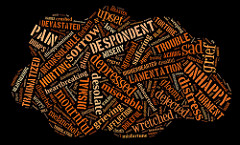 Mental health concerns the health of our mind, psyche and mental construct. This includes our thoughts, our thinking style and our mental model of the world. The mind never sleeps because it works to ensure that our internal organs are functioning at all times. It operates on a cycle that recurs every twenty-four hours, and it is better known as the
Mental health concerns the health of our mind, psyche and mental construct. This includes our thoughts, our thinking style and our mental model of the world. The mind never sleeps because it works to ensure that our internal organs are functioning at all times. It operates on a cycle that recurs every twenty-four hours, and it is better known as the  You can buy daylight
You can buy daylight  For a healthy body-mind, we need to take care of the physical body as this helps maintain a healthy mind. Eating a regular, colourful and balanced diet is essential for positive physical health.
For a healthy body-mind, we need to take care of the physical body as this helps maintain a healthy mind. Eating a regular, colourful and balanced diet is essential for positive physical health. Naturally, as we take care of our physical body, we also need to consider our Spiritual Self too. Nurturing our spiritual Self include adopting rituals and practices that align with our beliefs, including religious and cultural traditions. Nurturing your soul also include transparency, honesty and being truthful to yourself. This means confessing and admitting your mistakes and take ownership of your responsibilities. Acknowledge your wrongdoings and let go of the false pride. Inevitably, you can find forgiveness for yourself and for others.
Naturally, as we take care of our physical body, we also need to consider our Spiritual Self too. Nurturing our spiritual Self include adopting rituals and practices that align with our beliefs, including religious and cultural traditions. Nurturing your soul also include transparency, honesty and being truthful to yourself. This means confessing and admitting your mistakes and take ownership of your responsibilities. Acknowledge your wrongdoings and let go of the false pride. Inevitably, you can find forgiveness for yourself and for others.
 The people closest to you mean individuals nearest to you, as this may not be your immediate family. The people we choose to have around us impact our being. You might have lots of family members but may not live close to them. You might live closer to friends and work colleagues. The people around us influence our lives. Begin by appreciating those around you, that includes your neighbours and the community in which you live. After all, a part of you knows why you have chosen to live where you are. Start appreciating those people that are closest to you.
The people closest to you mean individuals nearest to you, as this may not be your immediate family. The people we choose to have around us impact our being. You might have lots of family members but may not live close to them. You might live closer to friends and work colleagues. The people around us influence our lives. Begin by appreciating those around you, that includes your neighbours and the community in which you live. After all, a part of you knows why you have chosen to live where you are. Start appreciating those people that are closest to you. Appreciate the outdoor and nature. Enjoy the freshness and colourful nature of the natural world and be one with nature.
Appreciate the outdoor and nature. Enjoy the freshness and colourful nature of the natural world and be one with nature.  Fake it until you make it. It might seem like an effort and difficult to foster a smile. But, it is effortless. Curl your lips together and grin. Turn that frown upside down! Smiling and positioning our mouth into the smile helps to improve our moods as the body is ‘tricked’ into releasing cortisol and endorphins. We all know all the many benefits of these two magical chemicals in the body. But, did you know that it is also catching?
Fake it until you make it. It might seem like an effort and difficult to foster a smile. But, it is effortless. Curl your lips together and grin. Turn that frown upside down! Smiling and positioning our mouth into the smile helps to improve our moods as the body is ‘tricked’ into releasing cortisol and endorphins. We all know all the many benefits of these two magical chemicals in the body. But, did you know that it is also catching?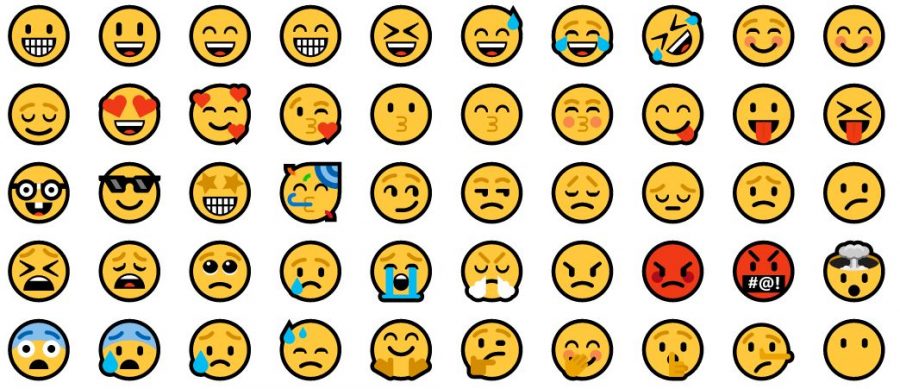
 Generally, feelings are my friend, and I have made acquaintances with almost all of my emotions. I had come to accept feelings and emotions as a part of my experiences to be felt. I had embraced and incorporated feelings and emotions within my being. I have also allowed myself to mindfully and consciously express the feeling felt. I had even released inherited, trapped and preconception emotions, as well as unblocking heart-wall emotions. I had healed compound and post-traumatic emotional reverberation too. But, as an empath, I had learned the hard way how my feelings can still affect me, and most importantly, how other people’s emotions also impacted me. I had occasionally absorbed other people’s emotional resonances, and I had allowed that to affect me.
Generally, feelings are my friend, and I have made acquaintances with almost all of my emotions. I had come to accept feelings and emotions as a part of my experiences to be felt. I had embraced and incorporated feelings and emotions within my being. I have also allowed myself to mindfully and consciously express the feeling felt. I had even released inherited, trapped and preconception emotions, as well as unblocking heart-wall emotions. I had healed compound and post-traumatic emotional reverberation too. But, as an empath, I had learned the hard way how my feelings can still affect me, and most importantly, how other people’s emotions also impacted me. I had occasionally absorbed other people’s emotional resonances, and I had allowed that to affect me. Feeling unsafe and insecure are intrapsychic emotions. They are the core woundings from a less than ideal early environment in childhood. But, we do not have to let the past define the present or the future. These feelings often stemmed from inconsistency, chaotic and dismissive attachment patterns from our caregivers. But, they are not to blame because they too were the victim of their core woundings.
Feeling unsafe and insecure are intrapsychic emotions. They are the core woundings from a less than ideal early environment in childhood. But, we do not have to let the past define the present or the future. These feelings often stemmed from inconsistency, chaotic and dismissive attachment patterns from our caregivers. But, they are not to blame because they too were the victim of their core woundings. Feeling insecure, succeed feeling unsafe. When feeling insecure, a child feels awkward and inadequate in their abilities, skills and resources. The child lacks confidence, have doubts and distrusts themself, others and the world. Thus, the child will grow up to seek validation from the exterior world, thinking it would soothe their inner sanctum. When we are insecure about ourselves, we compensate for the lacking by constantly looking for ways to feel safe and secure. We also compensate by avoiding situations or people, and we may become controlling, adopting perfectionistic traits, or have obsessive-compulsive behaviours. We will often look for what is missing within outside of ourselves. We do this by collecting (material) things, including having people around us that makes us feel good. Unfortunately, we will not fully soothe that void looking externally when our intrapsychic world is unsafe.
Feeling insecure, succeed feeling unsafe. When feeling insecure, a child feels awkward and inadequate in their abilities, skills and resources. The child lacks confidence, have doubts and distrusts themself, others and the world. Thus, the child will grow up to seek validation from the exterior world, thinking it would soothe their inner sanctum. When we are insecure about ourselves, we compensate for the lacking by constantly looking for ways to feel safe and secure. We also compensate by avoiding situations or people, and we may become controlling, adopting perfectionistic traits, or have obsessive-compulsive behaviours. We will often look for what is missing within outside of ourselves. We do this by collecting (material) things, including having people around us that makes us feel good. Unfortunately, we will not fully soothe that void looking externally when our intrapsychic world is unsafe. Always put yourself first, you matter the most! This is not a selfish thought, but rather a self-care process. You have to look after number one (YOU). You have to move past caring for others first. Undoubtedly, we were conditioned to be considered, to be nice, to be kind to others. We were told to think of others, to be helpful and to be thoughtful of others. We were taught to believe that it matters what others think about us. But, in so doing, we neglected our own needs and care. I certainly thought that if I was helpful, nice and kind, somehow, I would feel safe in being altruistic.
Always put yourself first, you matter the most! This is not a selfish thought, but rather a self-care process. You have to look after number one (YOU). You have to move past caring for others first. Undoubtedly, we were conditioned to be considered, to be nice, to be kind to others. We were told to think of others, to be helpful and to be thoughtful of others. We were taught to believe that it matters what others think about us. But, in so doing, we neglected our own needs and care. I certainly thought that if I was helpful, nice and kind, somehow, I would feel safe in being altruistic. When our external world is unsafe, we introspect and come to believe that our inner world is too. As we continue to think this way, we start to look for ways to feel safe and be safe. We tend to see threats when there are none. We make excuses for people, things and situations to minimise the threat, which may be imaginary. We may make excuses to change our behaviours and our mindsets because we are complacent in the familiar. This can keep us stuck in hypervigilant behaviours.
When our external world is unsafe, we introspect and come to believe that our inner world is too. As we continue to think this way, we start to look for ways to feel safe and be safe. We tend to see threats when there are none. We make excuses for people, things and situations to minimise the threat, which may be imaginary. We may make excuses to change our behaviours and our mindsets because we are complacent in the familiar. This can keep us stuck in hypervigilant behaviours. What we think, we will manifest because it was impressed in the mind. If you think that you are not safe, lacking in confidence or not worthy you are essentially broadcasting this unconsciously. We don’t consciously mean to send out these unconscious perceptions but we do, and we project it.
What we think, we will manifest because it was impressed in the mind. If you think that you are not safe, lacking in confidence or not worthy you are essentially broadcasting this unconsciously. We don’t consciously mean to send out these unconscious perceptions but we do, and we project it. When we feel unsafe, threatened or insecure it is often because the love is not there. Our feelings begin internally as a result of an external stimulus that we introject, but we could also be absorbing other’s people energy and emotion, unconsciously. We can protect ourselves and keep safe by reminding ourselves that we are loved. We are loved by God. We are loved by the Higher Power. We are loved and we can draw power from the universe to recharge our battery, just as we recharge our body through grounding.
When we feel unsafe, threatened or insecure it is often because the love is not there. Our feelings begin internally as a result of an external stimulus that we introject, but we could also be absorbing other’s people energy and emotion, unconsciously. We can protect ourselves and keep safe by reminding ourselves that we are loved. We are loved by God. We are loved by the Higher Power. We are loved and we can draw power from the universe to recharge our battery, just as we recharge our body through grounding.
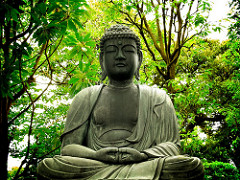 Acceptance is a concept of belief that recognises the validity of a thing or situation as it is. It is a conscious act with a positive intention for open-mindedness. It is to perceive something or a problem with a realistic view without judgement, assumption or supposition. In Psychology, acceptance is a catharsis, and it is a process of healing our cognition and emotion. But, if we can extend acceptance to all aspect of our lives and ourselves, we can come to a place of peace.
Acceptance is a concept of belief that recognises the validity of a thing or situation as it is. It is a conscious act with a positive intention for open-mindedness. It is to perceive something or a problem with a realistic view without judgement, assumption or supposition. In Psychology, acceptance is a catharsis, and it is a process of healing our cognition and emotion. But, if we can extend acceptance to all aspect of our lives and ourselves, we can come to a place of peace. To be able to accept what is, here are a few tips that I have tried and tested. They are the tools and strategies that work for me over the years in training and practising as a therapist. They may seem like common sense, but sometimes the simplest things are most effective.
To be able to accept what is, here are a few tips that I have tried and tested. They are the tools and strategies that work for me over the years in training and practising as a therapist. They may seem like common sense, but sometimes the simplest things are most effective. Accepting what is is a personal challenge that I sometimes struggle with because mistakes happen in the reality of a situation, especially in a relationship. It is an ongoing process, and one should not place emphasis on achieving and then forgetting it. It is not about ticking the box, and you are done with it. But, the more you practice and adopt this way of being, the more familiar you will become with accepting things, situation, people, life and yourself.
Accepting what is is a personal challenge that I sometimes struggle with because mistakes happen in the reality of a situation, especially in a relationship. It is an ongoing process, and one should not place emphasis on achieving and then forgetting it. It is not about ticking the box, and you are done with it. But, the more you practice and adopt this way of being, the more familiar you will become with accepting things, situation, people, life and yourself.
 If you research men’s health, you will that men are just as concerned with some of the health issues faced by women. Some of those issues, according to
If you research men’s health, you will that men are just as concerned with some of the health issues faced by women. Some of those issues, according to  Men have genuine
Men have genuine  Sometimes it is difficult to express our emotions and feelings. The intensity of our emotions can control us and take over the logical, practical mind. We can’t work or do anything if we spend all our time in tears or emotional turmoil. It can feel lonely when we are consumed with emotions. When our emotions overwhelm us, we can validate them and accept them rather than repress them. We need to make friends with our feelings. We can help our husband, boyfriend or partner by validating emotions that overwhelmed them and affirm their struggle. In the acknowledgement, you are allowing them to be okay as they grapple with the inner brawl.
Sometimes it is difficult to express our emotions and feelings. The intensity of our emotions can control us and take over the logical, practical mind. We can’t work or do anything if we spend all our time in tears or emotional turmoil. It can feel lonely when we are consumed with emotions. When our emotions overwhelm us, we can validate them and accept them rather than repress them. We need to make friends with our feelings. We can help our husband, boyfriend or partner by validating emotions that overwhelmed them and affirm their struggle. In the acknowledgement, you are allowing them to be okay as they grapple with the inner brawl. Mental health has been a challenge that has recently spiked on the global scale since the pandemic. It has long been a part of Western societies since the birth of psychiatry, and possibly longer than that. Mental disturbances are a challenge that poses psychological and physical discomfort in the individual. Mental disturbances can range from worrying about your loved ones to concern for their safety and welfare. It is any disturbances that are constructed in the mind. The longer we are exposed to these disturbances, the more problem it poses on our mental health. Thus, our mental wellness depends on the way we think and how we construct our inner world.
Mental health has been a challenge that has recently spiked on the global scale since the pandemic. It has long been a part of Western societies since the birth of psychiatry, and possibly longer than that. Mental disturbances are a challenge that poses psychological and physical discomfort in the individual. Mental disturbances can range from worrying about your loved ones to concern for their safety and welfare. It is any disturbances that are constructed in the mind. The longer we are exposed to these disturbances, the more problem it poses on our mental health. Thus, our mental wellness depends on the way we think and how we construct our inner world. Mental health awareness is the ability to develop compassion for ourselves and our mental construct as well as the mental capability of another. It is also about treating ourselves and others the way we would like to be treated. It is about watching our thoughts and thinking well of ourselves and others. Having an awareness of our thought processes give us realisation. In the realisation, we become compassionate with ourselves and how our mind works things out.
Mental health awareness is the ability to develop compassion for ourselves and our mental construct as well as the mental capability of another. It is also about treating ourselves and others the way we would like to be treated. It is about watching our thoughts and thinking well of ourselves and others. Having an awareness of our thought processes give us realisation. In the realisation, we become compassionate with ourselves and how our mind works things out. You are more than your mind. Therefore, you are more than the way you think and what you think. Thinking is just what you happen to do because the brain does not shut up. Thoughts will always intrude on the psyche. But, thought forms, and then they disappear. When you give focus, attention and meaning to the ideas, your thinking and other thought-forms arise to become problematic. It is at this point that having a
You are more than your mind. Therefore, you are more than the way you think and what you think. Thinking is just what you happen to do because the brain does not shut up. Thoughts will always intrude on the psyche. But, thought forms, and then they disappear. When you give focus, attention and meaning to the ideas, your thinking and other thought-forms arise to become problematic. It is at this point that having a 
 A stressful situation for one person will inevitably be different. People are divergent and will have a different way to view or manage problems. From our lived experiences, these individuals can often draw upon their internal resources to cope with stress. However, it does not mean that you can’t learn to build your inner strength.
A stressful situation for one person will inevitably be different. People are divergent and will have a different way to view or manage problems. From our lived experiences, these individuals can often draw upon their internal resources to cope with stress. However, it does not mean that you can’t learn to build your inner strength. Knowing your trigger will help you notice your stress pattern. Knowing this fact may be helpful to master your internal emotional reaction in a stressful situation. Knowing is an acknowledgement or awareness of what was previously elusive to you. It is about being conscious of what was unconscious about you.
Knowing your trigger will help you notice your stress pattern. Knowing this fact may be helpful to master your internal emotional reaction in a stressful situation. Knowing is an acknowledgement or awareness of what was previously elusive to you. It is about being conscious of what was unconscious about you. Knowing what you think about will help you make sense of your inner voice. Listening to what you say and how you talk to yourself in a stressful situation will help you become in control of the situation, rather than allowing the problem to control you. We are often overly critical of ourselves. We can be the harshest critique. But, if we can be compassionate and kinder to ourselves, we can be free of the thoughts and let them go easier.
Knowing what you think about will help you make sense of your inner voice. Listening to what you say and how you talk to yourself in a stressful situation will help you become in control of the situation, rather than allowing the problem to control you. We are often overly critical of ourselves. We can be the harshest critique. But, if we can be compassionate and kinder to ourselves, we can be free of the thoughts and let them go easier. Now, try learning to speak to yourself differently. If you used to shout at yourself internally, why not try speaking softly this time. Hopefully, you will notice that the impact is dramatically reduced. You may start to notice an alternate feeling associated with the gentle inner voice. You also may hear yourself speaking using contrasting words, kinder and loving expression. The change begins with small and enlarges, like a ripple.
Now, try learning to speak to yourself differently. If you used to shout at yourself internally, why not try speaking softly this time. Hopefully, you will notice that the impact is dramatically reduced. You may start to notice an alternate feeling associated with the gentle inner voice. You also may hear yourself speaking using contrasting words, kinder and loving expression. The change begins with small and enlarges, like a ripple.
 During the nocturnal hours, your body’s naturally crave sleep because your internal biological clock or the circadian rhythm is synchronised with the day/night cycle of the diurnal rhythm. The
During the nocturnal hours, your body’s naturally crave sleep because your internal biological clock or the circadian rhythm is synchronised with the day/night cycle of the diurnal rhythm. The  Have a goal in mind for your bedtime (sleep time). This is a time that you want to be in bed, lights out, eyes shut and breathing easily.
Have a goal in mind for your bedtime (sleep time). This is a time that you want to be in bed, lights out, eyes shut and breathing easily. I firmly believe that rituals are helpful. Have a bedtime routine and pattern that you stick to help you build a structure around your sleeping habit. I cannot stress the importance of sticking to your routines and think positively about enjoying the mundane.
I firmly believe that rituals are helpful. Have a bedtime routine and pattern that you stick to help you build a structure around your sleeping habit. I cannot stress the importance of sticking to your routines and think positively about enjoying the mundane. I give myself around 10-15 minutes for relaxation. In that time, I may mediate or listen to soothing, relaxing music to ease myself to sleep. You might find my
I give myself around 10-15 minutes for relaxation. In that time, I may mediate or listen to soothing, relaxing music to ease myself to sleep. You might find my  By 23.00, lights out for me, regardless of whether my husband or I am ready. I turned off the light.
By 23.00, lights out for me, regardless of whether my husband or I am ready. I turned off the light.